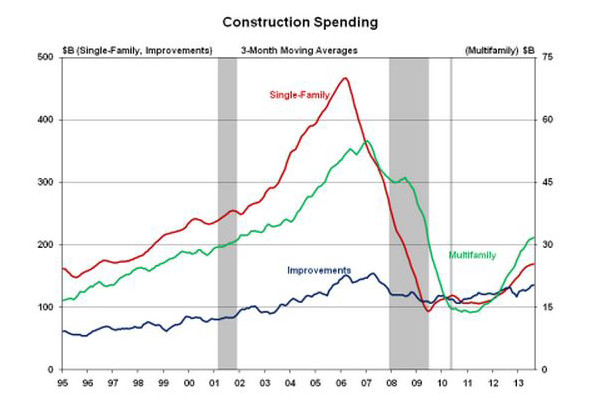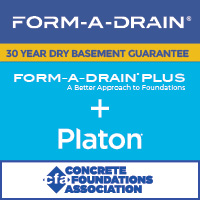Residential Construction Spending Hits Highest Level Since August 2008
Residential Construction Spending Hits Highest Level Since August 2008
Source: NATIONAL ASSOCIATION OF HOME BUILDERS
Created:
Total private residential construction spending rose 1.2% in August and is 18.7% higher than a year ago, with all segments showing growth
Total private residential construction spending is at its highest level since August 2008.
Private residential construction spending increased to a seasonally adjusted annual rate of $340.2 billion in August 2013 according to Census estimates. August data for construction put in place data was released today after a three-week delay due to the government shutdown.
The current reading is a 1.2% increase from the prior month and 18.7% higher than a year ago. After a tepid July, the pace of growth in construction spending improved in August.
Since market low points, total private residential construction spending is up 48.9% — single-family 88.5%; multifamily 146.6% — and improvement-related spending has grown 30.7%. Spending continues to improve for all categories, but remains well below their respective peaks.
Single-family spending registered an increase of 1.6% in August, while multifamily spending increased a healthy 3.2%. The home improvement category remained relatively flat with an increase of just 0.2% for the month.
For August, on a three-month moving average basis, all categories continued to experience significant improvements over the course of 2013. Remodeling related spending is up 8.4% for the year-to-date. Single-family spending has increased by 12.9% and multifamily spending has increased 15.8%.
The data show improvements in construction for all categories. However, the government shutdown had yet to occur and is not reflected in the August data.
A revised schedule posted by the Census indicates that September data for construction put in place will also be delayed one month. The September and October data are scheduled for release on the same date – December 2. This release should provide a better picture of construction spending moving forward.








